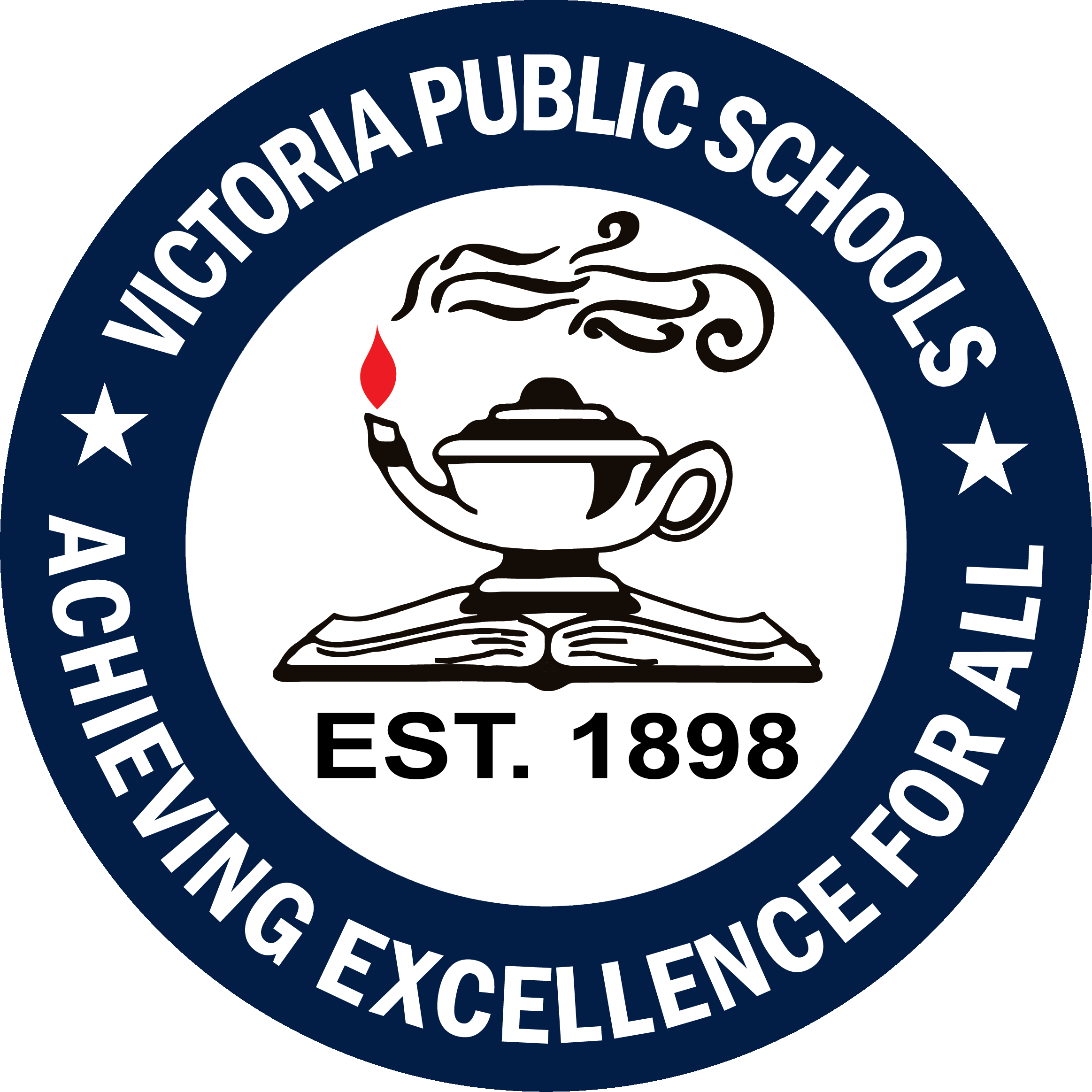AP/Honors Courses
Students have the opportunity to enroll in Honors courses during middle and high school in order to prepare them for subsequent Advanced Placement (AP) or Dual Credit courses in high school.
We offer the following middle school and high school Honors courses:
6th grade Honors ELAR
7th grade Honors ELAR
8th grade Honors ELAR
9th grade Honors ELAR
10th grade Honors ELAR
Honors Art
6th grade Honors Math
6th grade Accelerated Math
7th grade Honors Math
7th grade Accelerated Math
8th grade Honors Math
Honors Algebra 1
Honors Geometry
Honors Algebra 2
Honors Pre-Calculus
6th grade Honors Science
7th grade Honors Science
8th grade Honors Science
Honors Biology
Honors Chemistry
Honors Anatomy & Physiology
Honors Forensic Science
6th grade Honors Social Studies
7th grade Honors Social Studies
8th grade Honors Social Studies
Honors World Geography
Honors Art
Click on the video below to learn more about Honors Middle School courses and pathways.
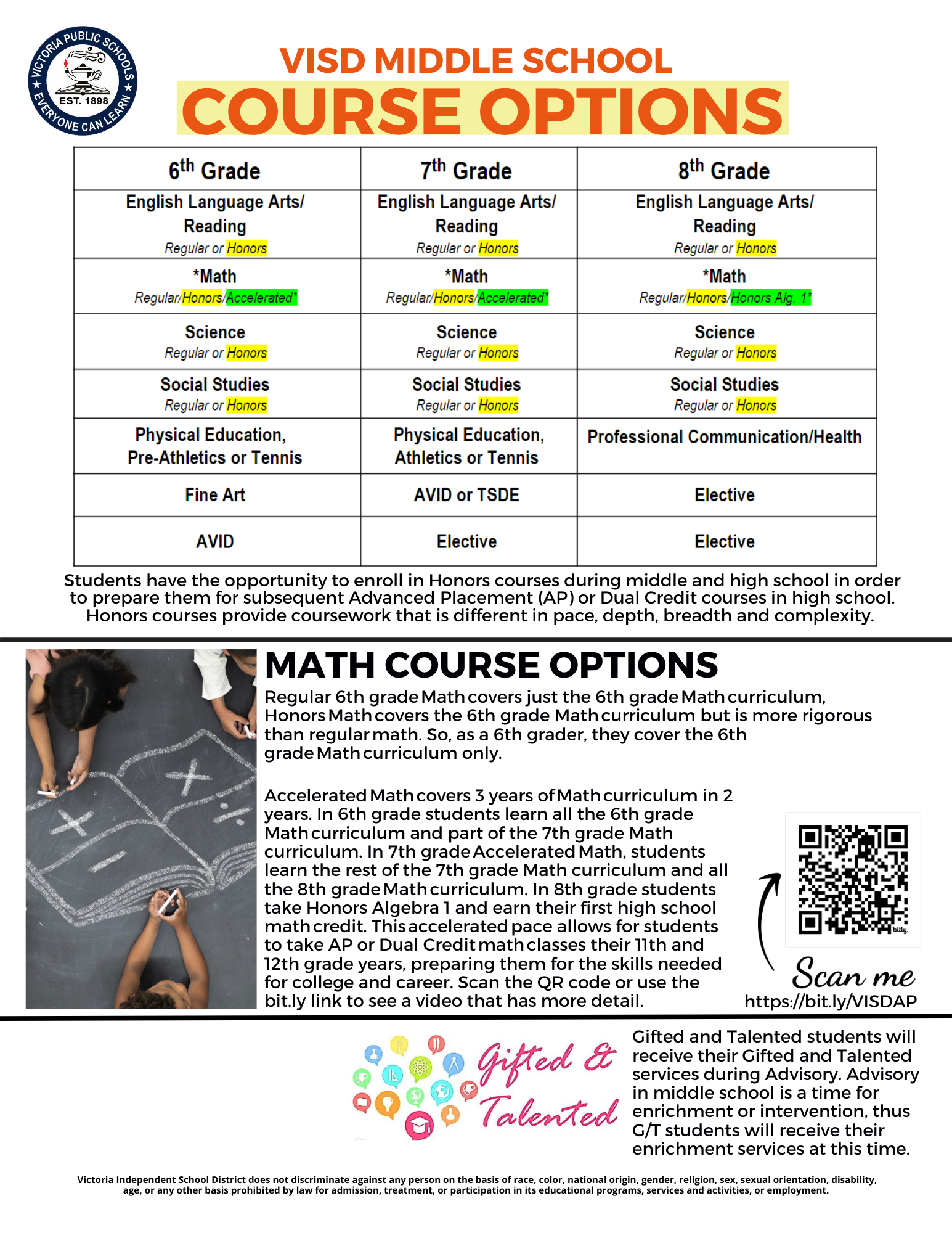
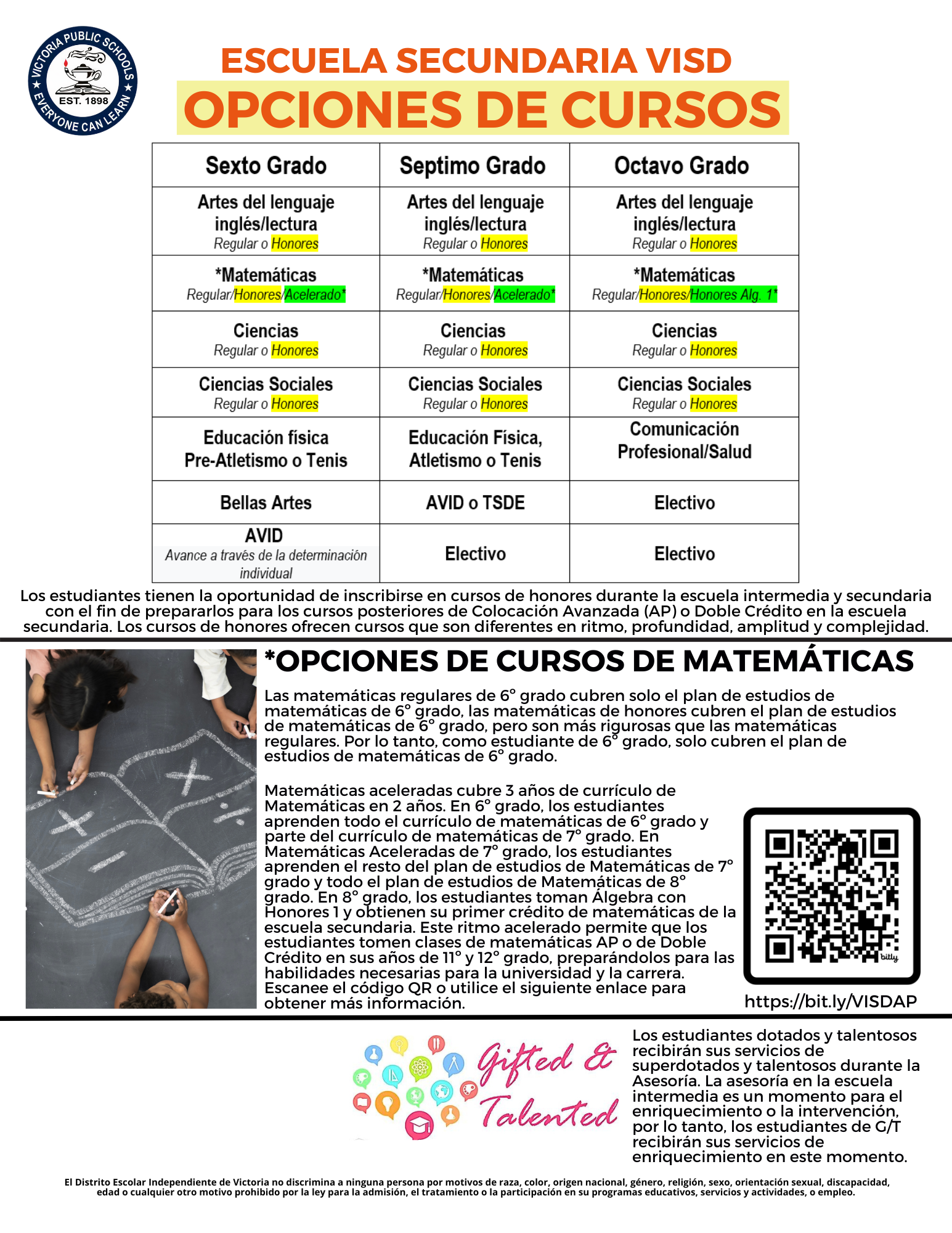
AP Courses
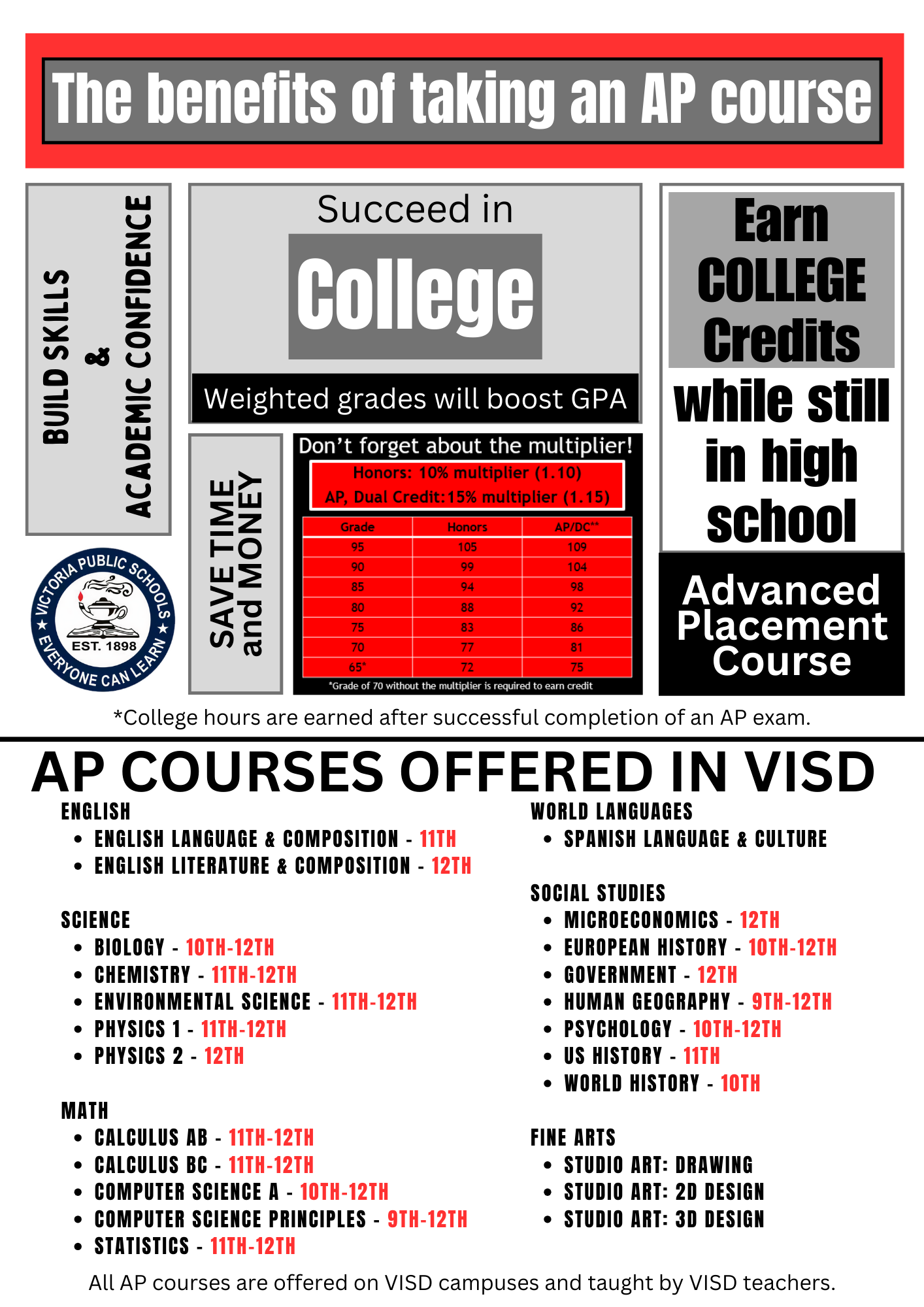
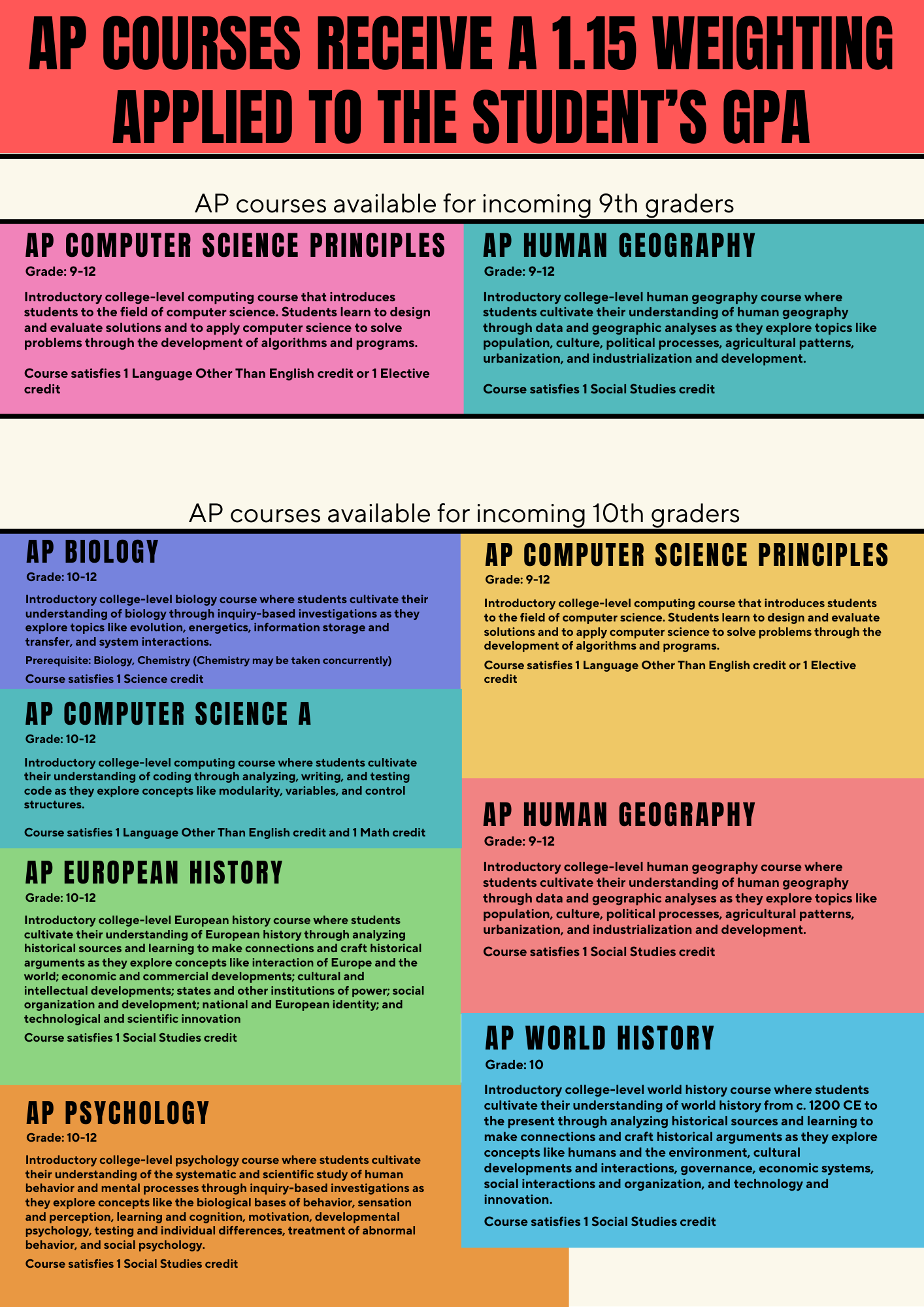
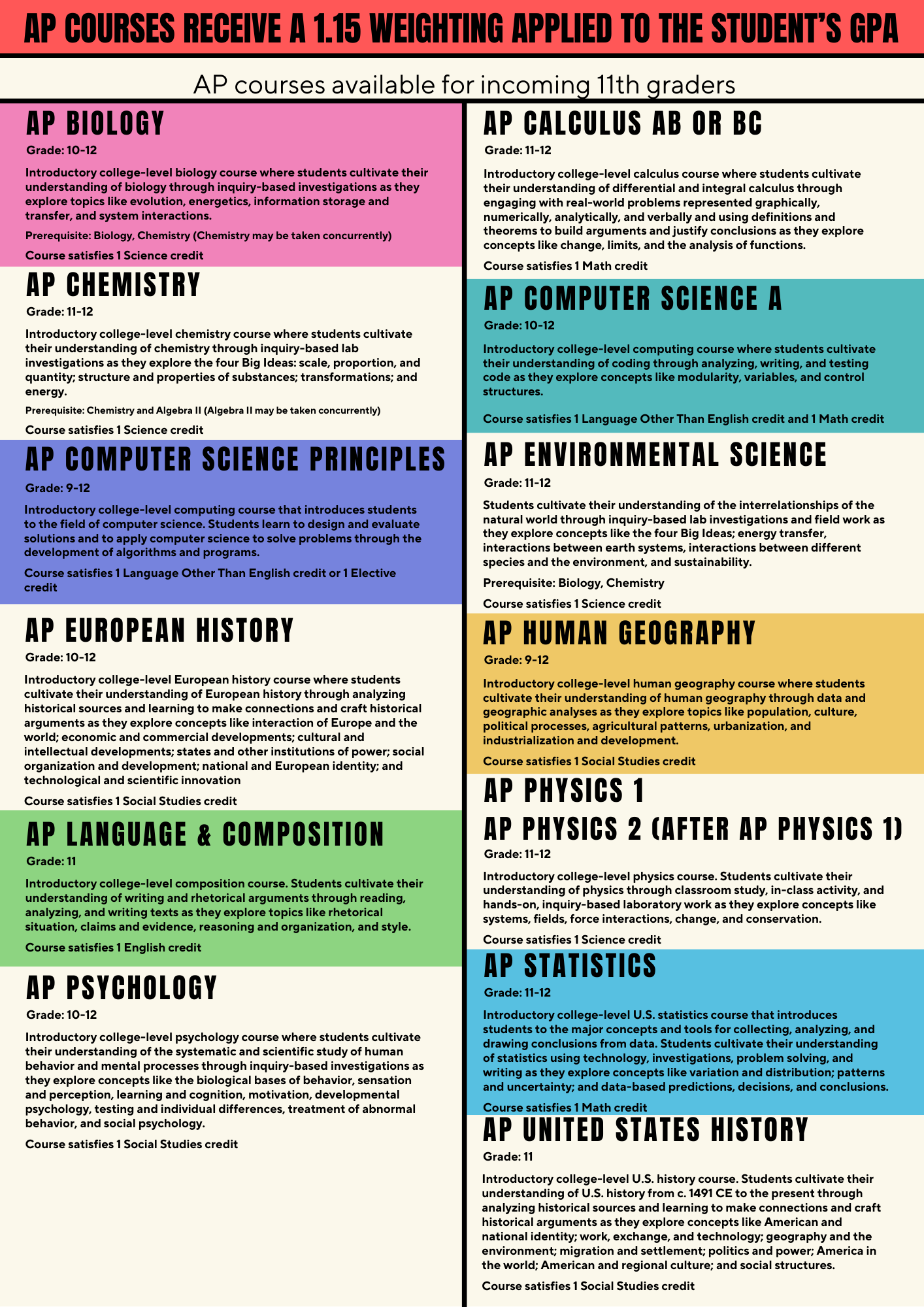
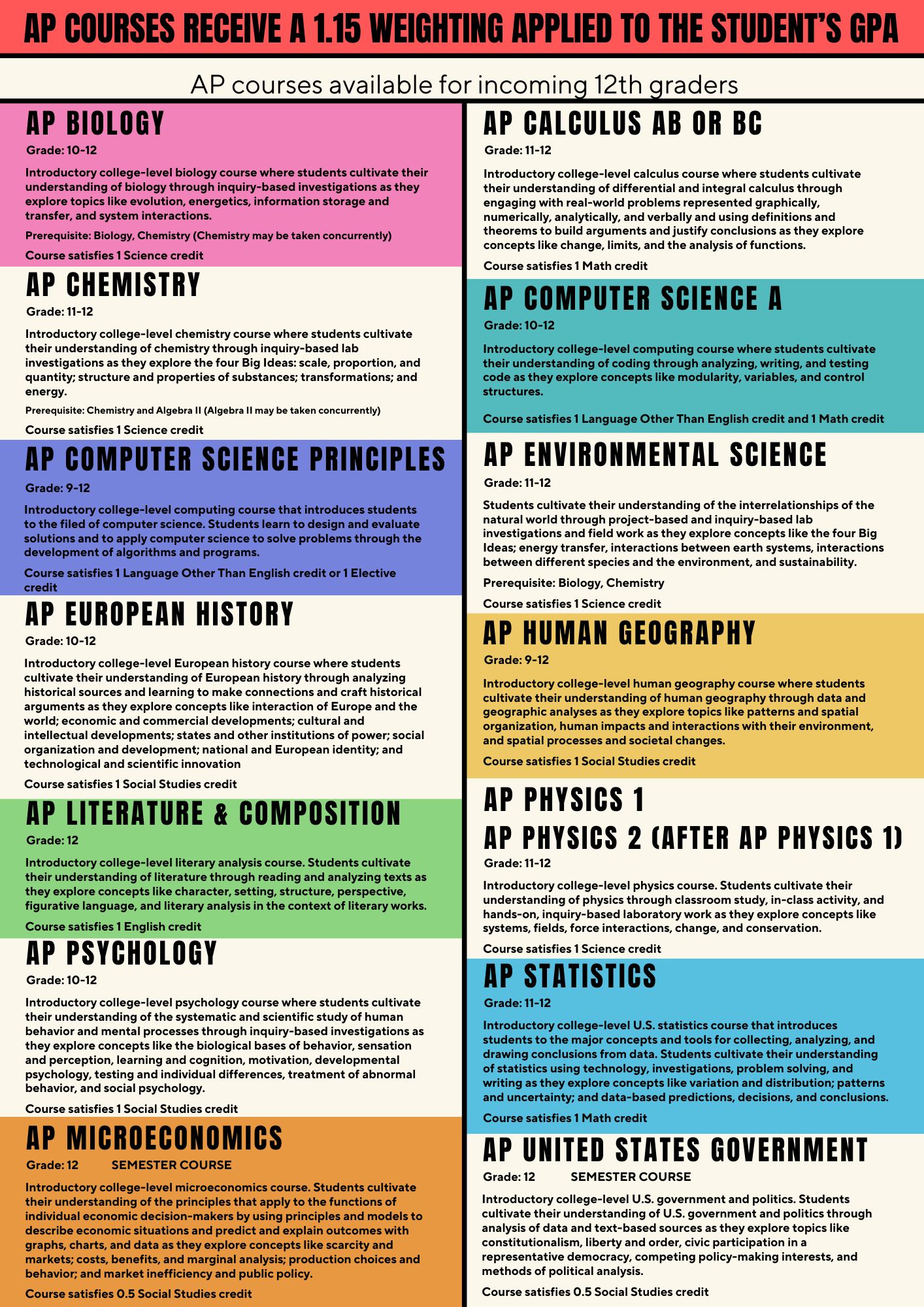
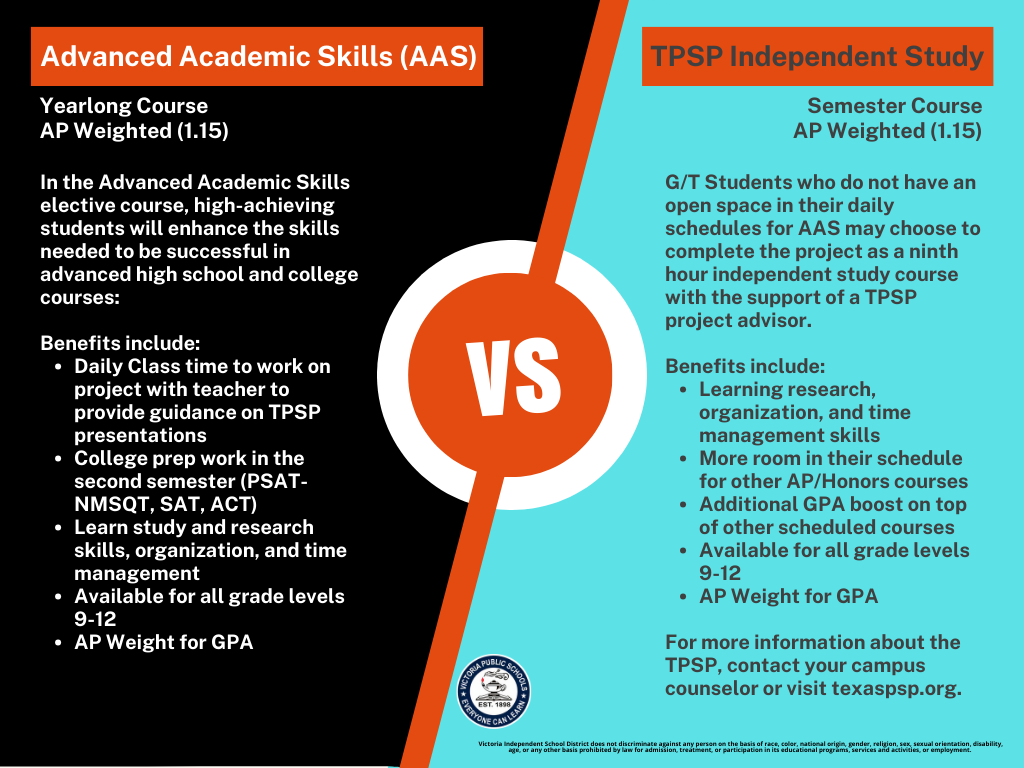
Compare AP and Dual Credit
ADVANCED PLACEMENT | DUAL CREDIT | |
DESCRIPTION | AP courses allow high school students to take college-level classes. Students can potentially earn college credit by passing AP exams with a 3, 4, or 5. | Dual credit courses allow high school students to concurrently earn both college credit and high school credit for a single class by meeting the course passing standards. To earn both college and high school credit, the students must earn a score of 70 or above. |
CREDIT | High school credit is earned by successfully passing the course with a minimum grade of 70. Most colleges offer college credit and/or placement for qualifying AP exam scores (a score of a 3, 4, or 5). | Both high school and college credit are awarded when students pass the dual credit course with a grade of 70 or above. The college determines the number of college credit hours awarded. |
TEACHERS & LOCATION | AP courses are taught by high school teachers trained by the College Board. | Dual credit courses are taught by college professors at Victoria College, online, or in some instances, high school teachers on the high school campus who have been credentialed by Victoria College. |
COLLEGE & UNIVERSITY ACCEPTANCE | AP scores are accepted for college credit nationwide. However, credit policies vary by college so students should verify individual requirements. | Dual Credit hours transfer to public colleges and universities in Texas. Students should verify transfer policies. |
ACADEMIC RIGOR | Standardized AP curriculum is set by the College Board, which reviews and approves course syllabi. | Course syllabi undergo review and approval by specific academic departments at Victoria College. |
COST | Instruction and materials are provided to the student free of charge. Students may be required to pay the exam fees. | Instruction and materials are provided to qualifying students (as defined by Texas HB8) free of charge. Scholarships may be available to students not qualifying under HB8. Students should inquire about Dual Credit scholarships in the College and Career Center on their campus. |
HIGH SCHOOL GPA IMPACT | Rigorous college-level curriculum earns weighted grades based on VISD policies. | Challenging college-level content receives weighted grades per district standards. |
COLLEGE TRANSCRIPT IMPACT | Individual colleges and universities evaluate AP scores for credit based on their institutional policies. Students are able to select which AP scores are reported to colleges and are able to decide which credit hours to accept once enrolled in the college or university. | Partner colleges permanently record grades on transcripts. Students must submit all transcripts when applying to any college, since failing marks cannot be removed. |
ELIGIBILITY | AP courses are open to all students, though some APs have suggested prerequisite courses to prepare. Students should be ready for college-level curriculum. | Students must meet the Texas Success Initiative (TSI) criteria (minimum scores on SAT, ACT, or TSIA2) and submit a college application to qualify. |
POLICIES & REGULATIONS | VISD policies and regulations are applied to all AP students. | Victoria College policies and regulations apply to Dual Credit students. |
LENGTH OF COURSE | With the exception of AP Economics and AP Government, AP course content is spread across two semesters. The overall course average is determined by averaging the first semester grade and the second semester grade. | Dual Credit coursework is completed in one semester. |
DUAL CREDIT
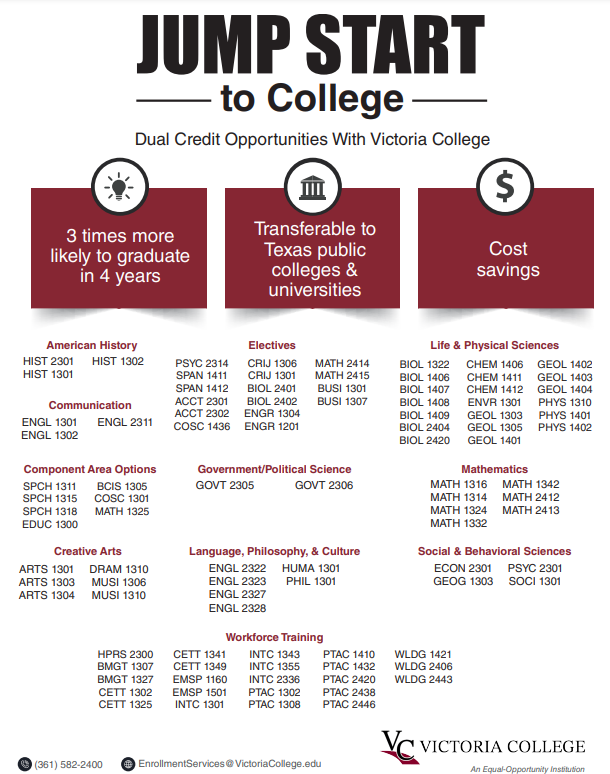
For DUAL CREDIT information, please contact:
Victoria East High School Career & College Coach: Alexis Bazar, alexis.bazar@visd.net
Victoria West High School Career & College Coach: Maria Mazuca, maria.mazuca@visd.net
VISD Director of P-TECH and College Readiness: LaDonna Fory, ladonna.fory@visd.net
Below are some Web Based Tutorials/Information for AP Courses
